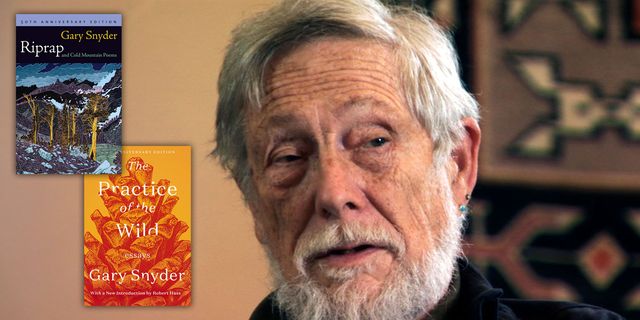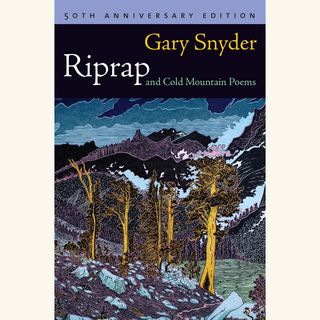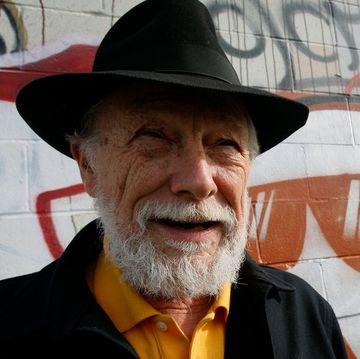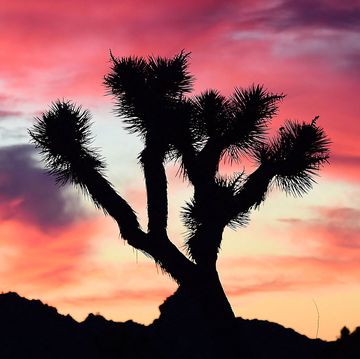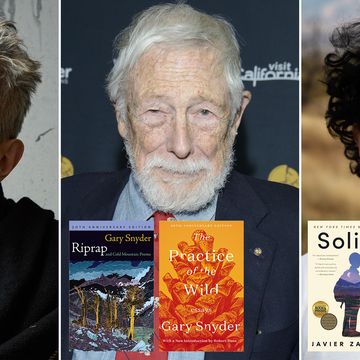Near my home, part of what I regard as home, is one of the last undisturbed marshlands that remain in the San Francisco Bay Area, a migratory stopover on the Pacific Flyway. Go to these marshlands at twilight and you can walk down to the water and observe as ducks, avocets, plovers, and curlews gather along the edges of the marsh or in the pink-and-lilac-reflecting water, the pelicans passing overhead, occasionally a great blue heron or a snowy egret or a least sandpiper—delicate lines beneath the molten gleam. Late in summer, the kind of reverence this fosters can be disrupted by the hideous egg-like stench of sulfur, algae in the bay ponds releasing toxins.
As Gary Snyder puts it, “there has been no wilderness without some kind of human presence for several hundred thousand years. Nature is not a place to visit, it is home.” While I’ve traveled to other beautiful remote areas around the world, I never really leave a Northern California landscape—it’s a wild that is always in me. Similar spells of unshowy solitude, putting oneself on the same footing as the landscape, both its materialities and its absences, pervade Snyder’s Riprap and Cold Mountain Poems and The Practice of the Wild, the May California Book Club selections—though Snyder has an affinity for mountains, rivers, and oceans over the humbler marsh. Riprap and Cold Mountain Poems is a sturdy poetry collection, half of which is made up of Snyder’s early poems; the other half, his translations of Han-shan, a Chinese poet. The experiences therein refuse adornment, or even any too-loud praise.
In 1959, a year after appearing as the character Japhy Ryder in Jack Kerouac’s The Dharma Bums, Snyder published 500 copies of the first edition of Riprap in Japan, with the help of poets Cid Corman and Lawrence Ferlinghetti. The translation of Han-shan’s “Cold Mountain” that Ryder works on in The Dharma Bums, meanwhile, appears in a different form in the larger collection we’re reading this month. Unlike the search for colorful stimulation in so many of the literary works that emerged from the counterculture in the previous century, including Kerouac’s books, simplicity and deep working-class sympathies undergird Snyder’s own poems.
In Riprap, the speaker is not estranged from nature, as capitalism would have us be. But nor does Snyder, in this early work at least, flood things with dramatic human emotions. Not for him is the bright rejoicing and dark madness favored by some poets of the earlier British Romantic movement. He may be a descendant of certain Romantics, but Snyder is inclined to make himself and other people part of the landscape as a matter of course. For instance, in “T-2 Tanker Blues,” which references his time working as a fireman on a boat, Snyder writes that he digs “the universe as / playful, cool, and infinitely blank.” And a little later, he references the “inhuman ocean.” But catches himself with “I will not cry Inhuman & think / that makes us small and nature / great, we are, enough, and as we / are—Invisible seabirds track us / saviours come and save us.” Further into the poem, as he continues to teach himself, he says, “there is nothing vaster, / more beautiful, remote, unthink / ing (eternal rose-red sunrise / on the surf—great rectitude / of rocks) than man, inhuman man.” Standing in the right relationship to the natural world and allowing the wild its own integrity or rightness involve shifting one’s human consciousness away from spectacle toward a graceful ordinary solitude.
Several decades later—Snyder published The Practice of the Wild in 1990—these ideas have been progressed in a series of meditative essays. He understands that an estrangement from our own wildness fuels this mechanized civilization. A “practice,” then, for him, lies in opposition to the mechanistic as a “deliberate sustained and conscious effort to be more finely tuned to ourselves and to the way the actual existing world is.” The philosophy of Zen Buddhism, which strongly influences Snyder’s work, calls for expanding the present moment, being mindful, allowing attachments and desires to fall away. Recognizing the synchrony between the world and our own consciousness can take a lifetime of being present within natural places, bonding ourselves to them, finding homes there—but we’re brought to something of the same awareness in the wisdom of The Practice of the Wild.•
Join us on May 16 at 5 p.m. Pacific time, when an array of panelists and author Gary Snyder will appear in conversation with CBC host John Freeman to discuss Riprap and Cold Mountain Poems and The Practice of the Wild. Register for the Zoom conversation here.
WILDERNESS PRACTICE
Read an excerpt from Snyder’s 1990 essay collection. —Alta
DAZZLING POEMS
Read a Q&A with poet Tayi Tibble about Rangikura. —Alta
EVENT RECAP
If you missed last week’s event with author Jessica Hagedorn, special guest Sean San José, and CBC host John Freeman, you can read a recap or watch the video. —Alta
ROCK AND ROLL NOVEL
Read host John Freeman’s beautiful essay on queer love, family, and the many vivid characters that populate The Gangster of Love. —Alta
ART OF THE BOARD
Emily St. Martin reviews author José Vadi’s Chipped: Writing from a Skateboarder’s Lens. She says, “The seamless throughline Vadi develops between skateboarding and poetry suggests that skaters and poets are cut from the same cloth.” —Alta
SHAKING UP SHAKESPEARE
This Saturday, April 27, at 7:30 p.m., go see prior CBC author Karen Tei Yamashita’s play Indian Midsummer at the Experimental Theater at UC Santa Cruz. It is free and open to the public. —UC Santa Cruz
Alta’s California Book Club email newsletter is published weekly. Sign up for free and you also will receive four custom-designed bookplates.
Anita Felicelli, Alta Journal’s California Book Club editor, is the author of the novel Chimerica and Love Songs for a Lost Continent, a short story collection.
